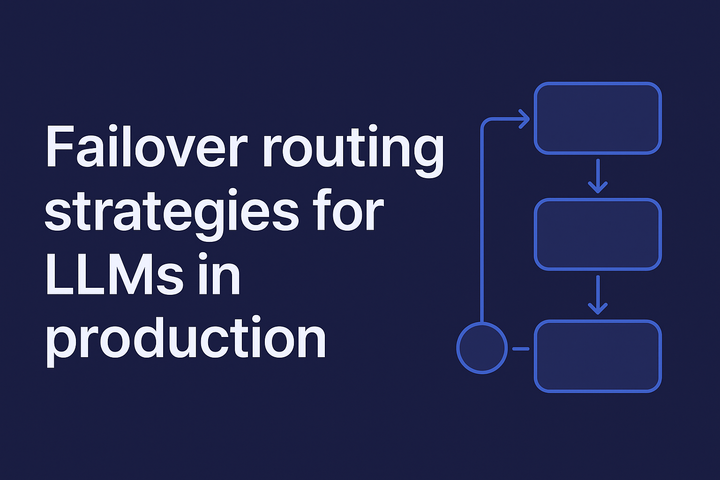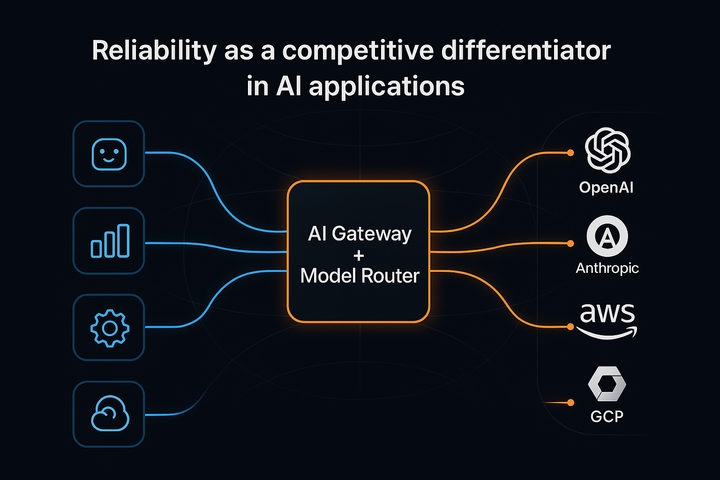Jamming on Event-Driven Architecture and MCP for Multi-Agentic Systems
Insights from Portkey's AI Practitioners Meetup on building scalable multi-agent systems. Learn about Event-Driven Architecture patterns, Model Context Protocol implementation, and real-world experiences building multi-agents system.
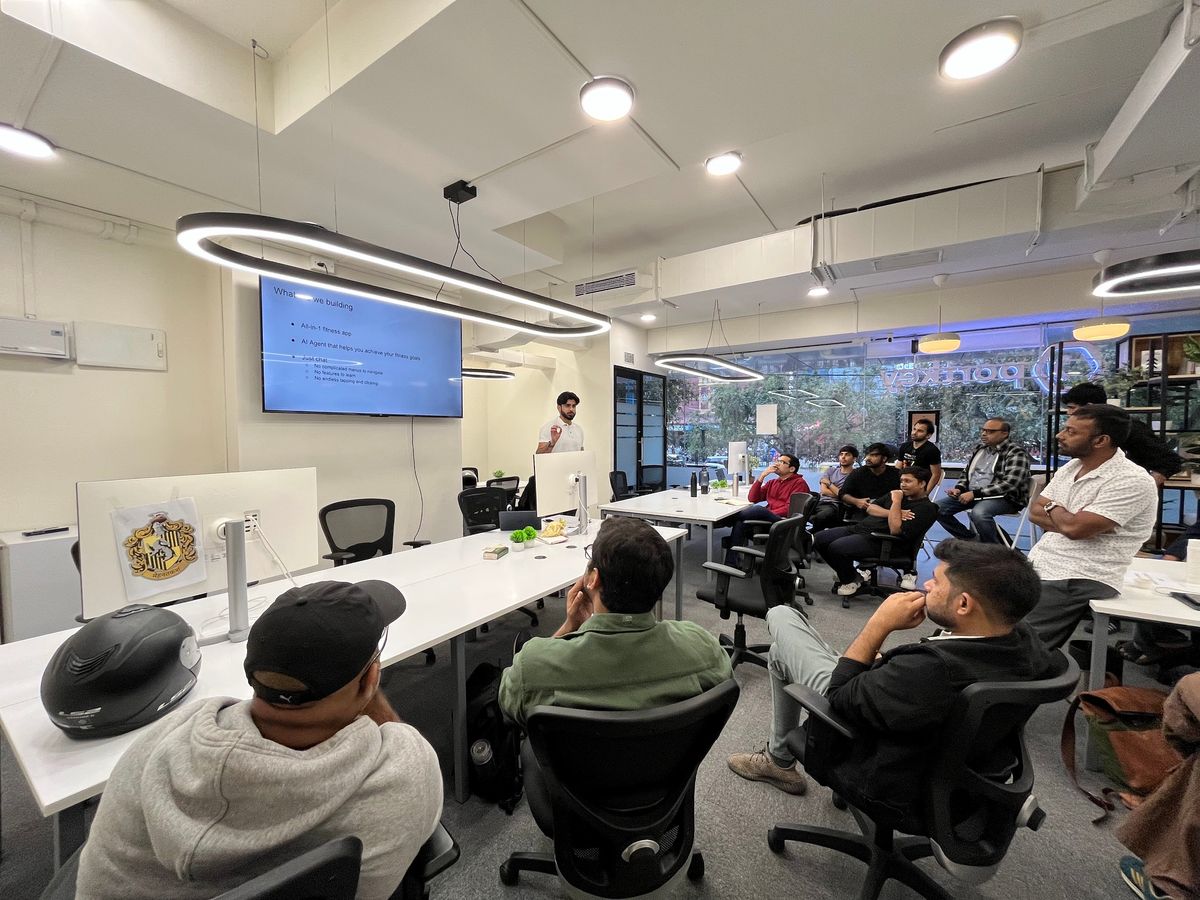
Portkey's commitment to fostering AI practitioner knowledge sharing continued with an intimate technical session at our Bangalore office. The event brought together engineers and architects to explore Event-Driven Architecture (EDA) patterns and Model Context Protocol (MCP) implementation for AI agents.
A Deep Dive into AI Agents Architecture
The evening featured three thought-provoking talks that explored different aspects of building scalable AI agent architectures:
Event-Driven Architecture: From Monolith to Microservices
Ojasvi Yadav kicked off the evening by sharing insights from building an all-in-1 fitness app powered by AI agents. The presentation walked through the evolution from a monolithic architecture to a more scalable event-driven system, highlighting how growing complexity in agentic products demands better architectural patterns.
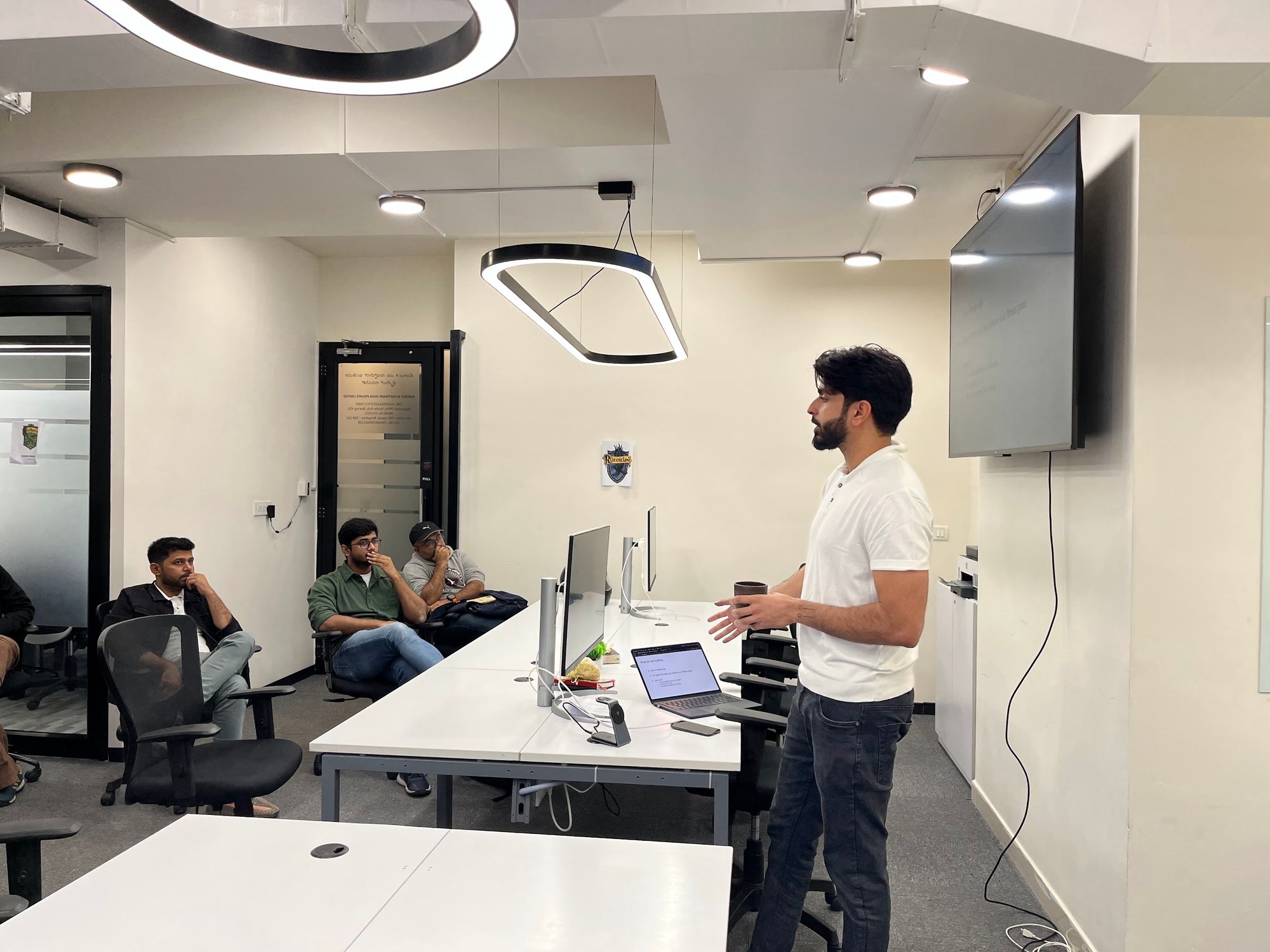
"Agentic products grow quickly once in prod - more tools, more workflows...more chaos!" Yadav explained, demonstrating how traditional monolithic approaches struggle with scaling AI agent systems.
The talk featured practical insights into:
- Single vs Multi-Agent architectures
- Benefits and tradeoffs of different architectural patterns
- Real-world implementation challenges and solutions
Scaling Event-Driven Systems
Building on the EDA architectural foundations, Anudeep Yegireddi focused on practical considerations around "To framework or not?" - a crucial decision point for teams implementing event-driven systems.
He shared insights into when frameworks make sense (straightforward use cases, learning phases, non-technical teams) versus when to avoid them (when seeking competitive advantage or implementing novel architectures).
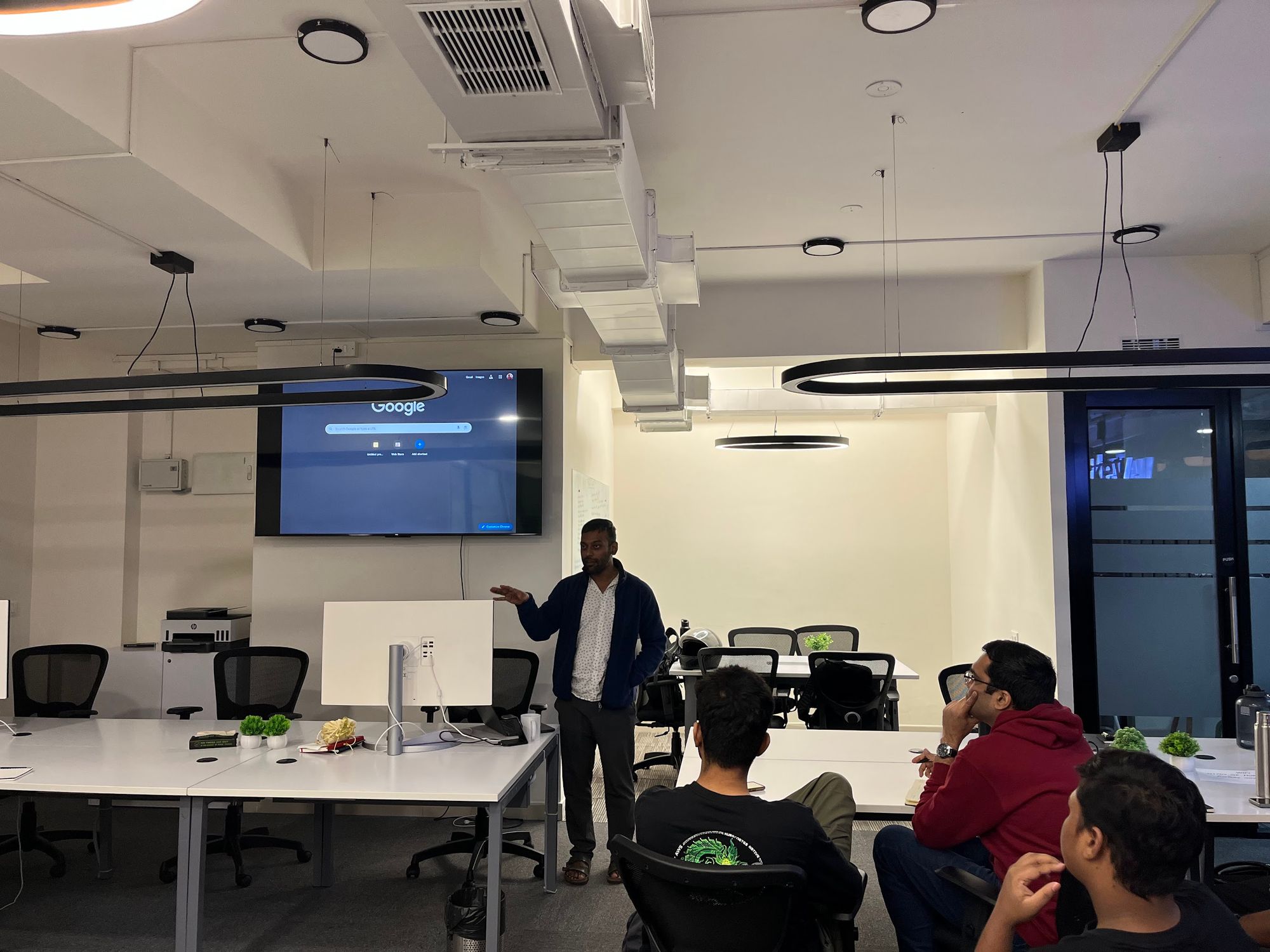
Model Context Protocol: A New Standard
Ayush Garg, CTO and Co-founder of Portkey AI, wrapped up the technical discussions with a deep dive into Model Context Protocol (MCP). Drawing parallels with USB-C and HTTP, he explained how MCP serves as a universal connector in the AI ecosystem.
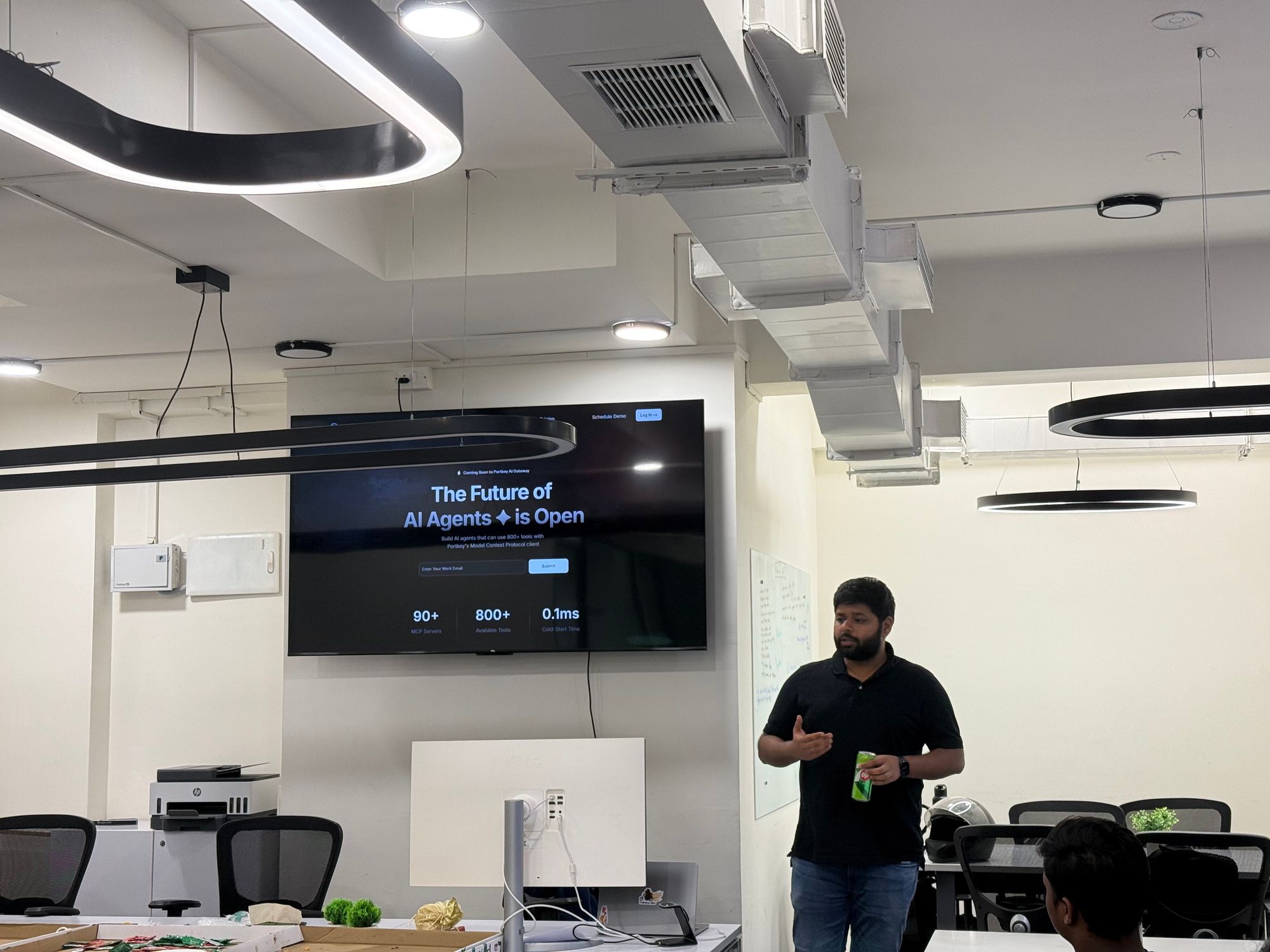
"Think of MCP for LLMs as HTTP for web browsers," Ayush explained, highlighting its role in standardizing communication for LLMs:
- with LLMs NLMs
- with data sources
- with tools
- with prompts
The talk demonstrated practical examples of MCP implementation, including a step-by-step walkthrough of a system performing code deployment and Slack notifications. Find out a comprehensive map of all available MCP servers
Here's the demo on MCP from the talk:
Looking Ahead
As we reflect on the insights shared during the event, several key themes emerge for the future of AI systems:
- Standardization is Key: Just as HTTP standardized web communication, protocols like MCP are establishing standards for AI system interactions.
- Architectural Evolution: The shift from monolithic to event-driven architectures mirrors the evolution we saw in web services.
- Practical Implementation: Real-world examples demonstrate how theoretical concepts translate into production systems.
Join the AI Practitioner Community
Stay connected with our growing community of AI practitioners. The challenges and solutions shared at this event are just the beginning of what we need to figure out together. Join our Discord community of 2000+ AI practitioners.
Still Curios? Meet us Every Week at LLM Office Hours: The conversation doesn't stop here! Every week we dive deep into practical challenges, share solutions, and explore the latest developments in LLM implementations on our Discord. Whether you're troubleshooting production issues or exploring new architectural patterns, these sessions provide a platform for direct engagement with fellow practitioners.
Building something interesting with AI? We'd love to hear from you.


